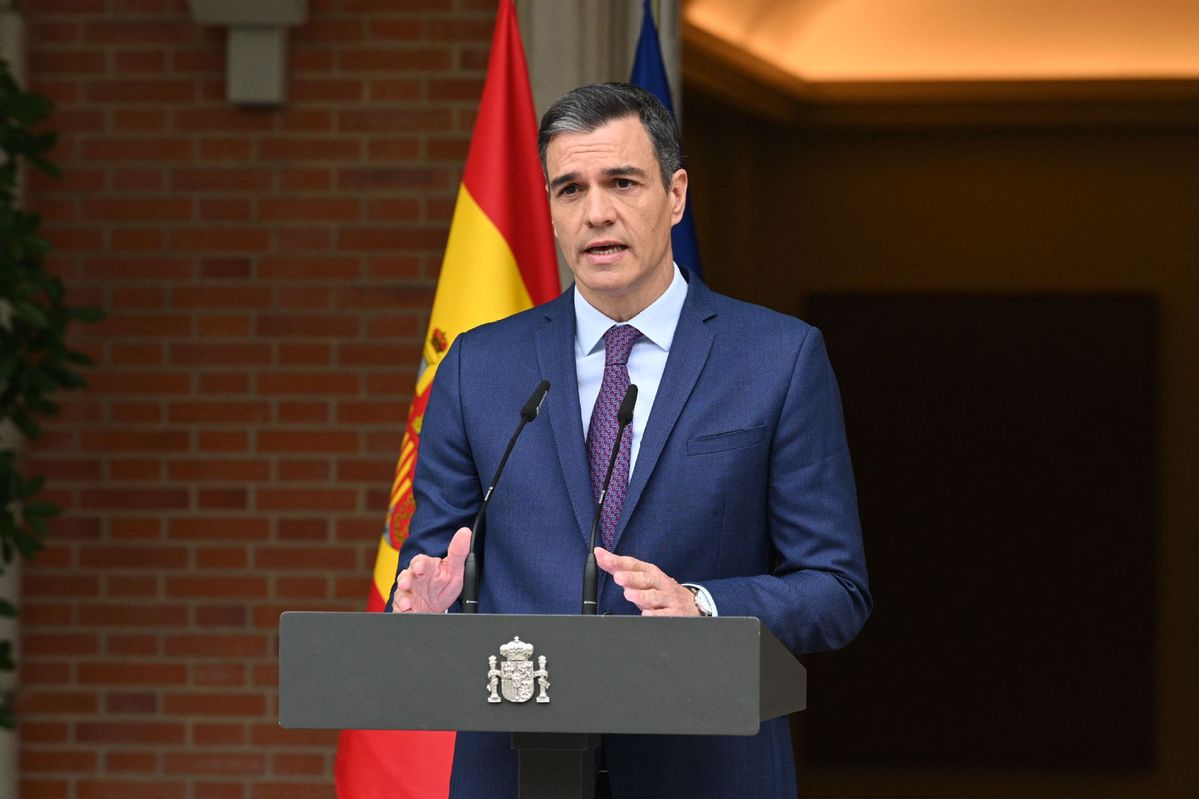Snap general election called in Spain
By JULIAN SHEA in London | China Daily Global | Updated: 2023-05-30 09:11

Spain's socialist Prime Minister Pedro Sanchez has called a snap general election for July 23 after his Spanish Socialist Workers' Party, or PSOE, and its governing ally Podemos were soundly defeated by conservative parties in municipal and regional elections on the weekend.
Sanchez, who became prime minister in 2018, had previously indicated he would go to the polls later in the year.
"I took the decision (to call the election) when looking at the results of the elections of yesterday," he said on Monday. "Although yesterday's elections had a local and regional scope, the meaning of the vote conveys a message that goes beyond that. That is why, as both prime minister and PSOE's secretary-general, I personally assume the results."
Cuca Gamarra, secretary-general of the conservative Popular Party, or PP, called the results "an immense blue tide".
"The Spanish people have spoken and they have spoken clearly and forcefully — and what they have said today is that the people's party has won the municipal and regional elections," she said.
At the end of last week, anticipating a good performance, PP leader Alberto Nunez Feijoo had already told supporters that "these aren't just elections to choose a mayor or a regional government".
"Sanchismo has stained everything and I'm afraid to have to say, respectfully but sadly, that the prime minister of my country has no limits. His party has been unable to stop him and so we must do so together, as Spaniards."
Across the country in the regions where voting was taking place, the PP won 31.5 percent of votes, up almost nine points on its 2019 regional election performance, compared with 28.2 percent for the Socialists, which was 1.2 percentage points down on 2019.
The PP won seven of the 12 regions being contested, and was dominant in areas that had previously voted for PSOE, including Valencia, Aragon, and La Rioja. The far-right Vox party also made significant gains.
Jose Pablo Ferrandiz, from polling company Ipsos, told the Financial Times newspaper the results were an "unmitigated defeat" for the socialists.
"It cannot be hidden or underestimated. Sanchez comes out wounded and Feijoo reinforced," he said.
Sanchez had hoped Spain's highest levels of employment in 15 years and inflation that is lower than in many other EU countries would go down well with voters, but wage stagnation seems to have worked against him.
"Things will have to change if he wants to reach the end of the year with a chance of victory," Ferrandiz added.
PSOE spokesperson Pilar Alegria said the party had got the message.
"This isn't what we'd been hoping for after these weeks of campaigning and, obviously, we will have to reflect (on what happened) over the coming months," she said.
























